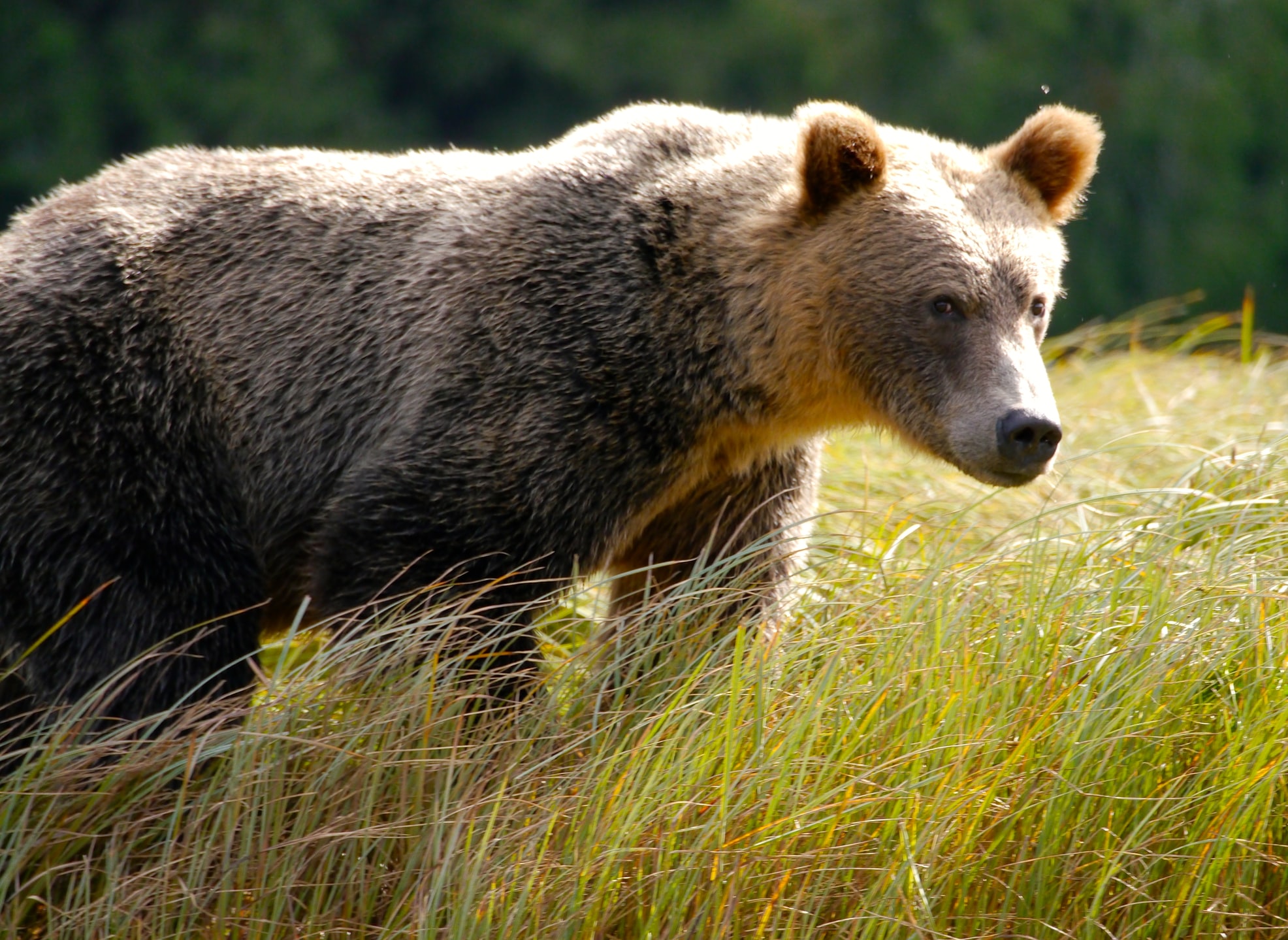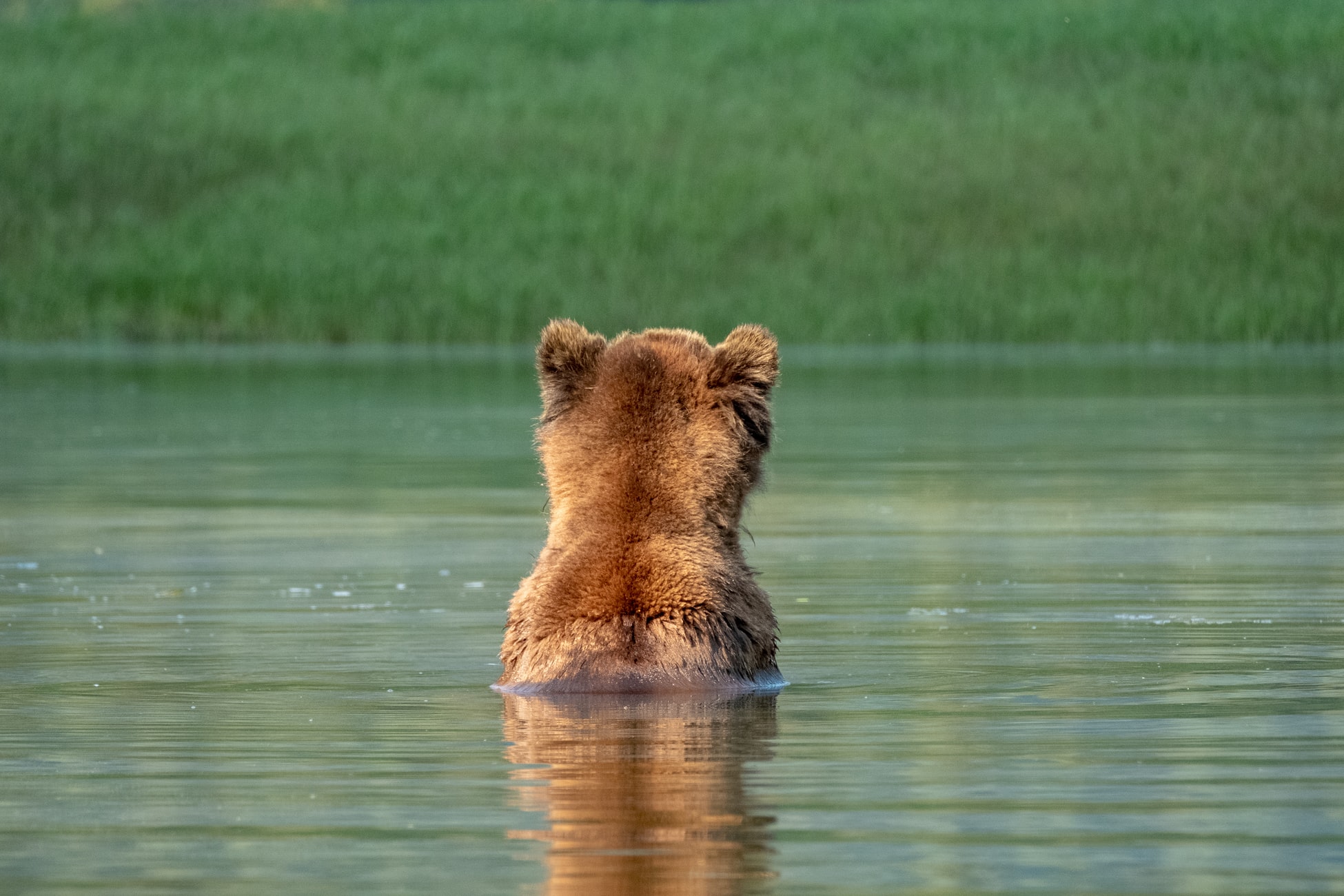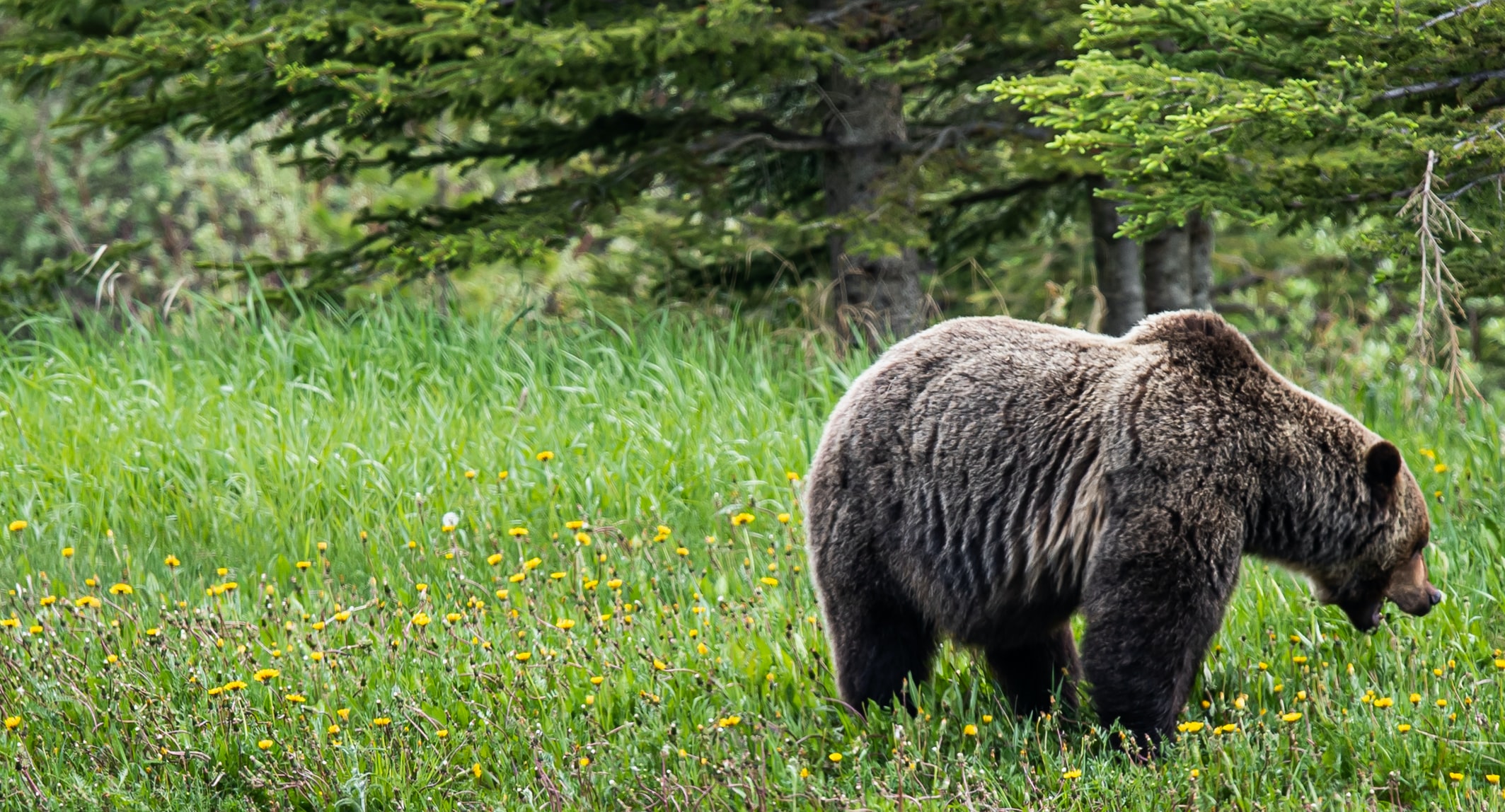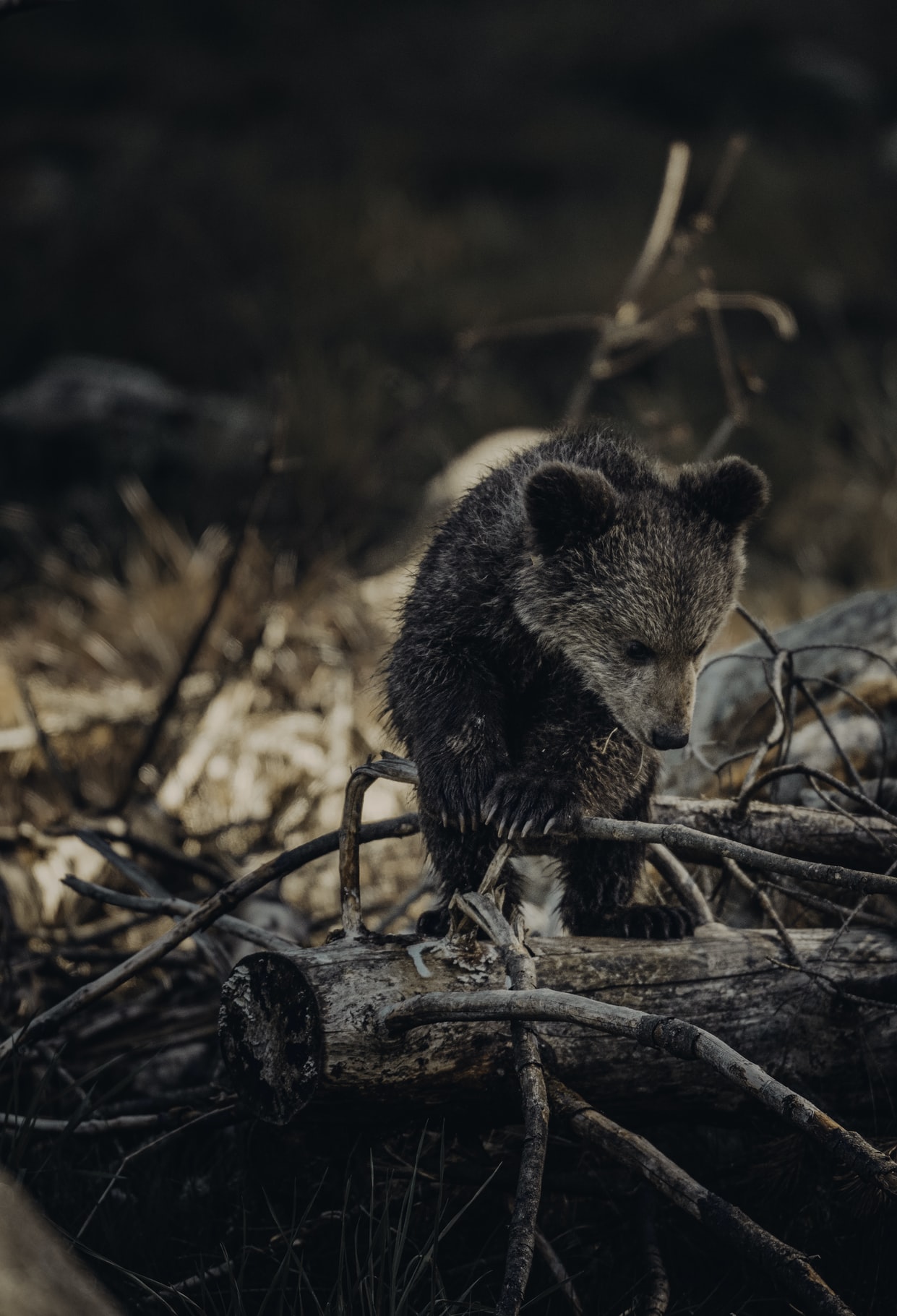
The 9th Circuit Court of Appeals has ruled in favour of protecting grizzly bears, restoring their status under the Endangered Species Act, forcing planned hunts to be scrapped.
Federal court upholds protections for Yellowstone grizzlies
A federal court on Wednesday 8 July, upheld a lower court decision reversing a Trump administration policy that eliminated protections for grizzly bears in and around Yellowstone National Park. A three-judge panel agreed with a prior ruling that the Fish and Wildlife Service (FWS) acted contrary to the best available science in its determination that grizzly bears near the park would no longer be listed as a threatened species. FWS delisted grizzlies in 2017, affecting about 700 bears in Wyoming, Idaho and Montana. The ruling meant Wyoming and Idaho were forced to cancel hunts planned for lands outside of Yellowstone and the Grand Tetons parks, which would have allowed for up to 23 bears to be killed.

Conservationists and tribes that see the bears as sacred called ruling a “tremendous victory.”
The 9th Circuit Court of Appeals ruled in favor of protecting grizzly bears last week, restoring their status under the Endangered Species Act in the wake of hunts planned in Idaho and Wyoming, reported the GoodNewsNetwork.
Conservationists and tribes that see the bears as sacred called it a “tremendous victory.” The decision spares the grizzlies from previous plans for controlled hunts in Wyoming and Idaho on land that is within the Greater Yellowstone Ecosystem, which includes 34,000 square miles.
The judge said that the decision in 2017 to delist the grizzly bear violated the Endangered Species Act because it was “the result of political pressure by the states rather than having been based on the best scientific and commercial data.”
The Fish and Wildlife Service decision to remove the grizzly bear from its list of endangered or threatened species prompted a lawsuit. The delisting was then overturned in Federal District Court a year later, which forced Wyoming and Idaho to cancel the hunts planned for lands outside of Yellowstone and the Grand Tetons parks, which would have allowed for up to 23 bears to be killed.
Source: GoodNewsNetwork

Supporters say diversity is at stake, with the bears being essential to lasting species health
The disagreement highlights the varying opinions on the health of the grizzly population, which rebounded after a hard-fought recovery from near-extinction last century, when only 136 animals remained in North America—out of the 50,000 that once roamed.
Supporters of the latest decision say genetic diversity is at stake, with the bears on the outer fringes of the parks being essential to lasting species heatlh.
“Not a single (scientific) paper has said they are OK in the long term,” Matthew Bishop of the Western Environmental Law Center told the Star Tribune.
In ruling that Yellowstone grizzly bears must remain protected under the Endangered Species Act, the 9th Circuit Court of Appeals pointed to the lack of “concrete, enforceable mechanisms” to “ensure long-term genetic health of the Yellowstone grizzly.” The ruling explains that a “commitment to increase population size” is “required to ensure long-term viability.”
Government and ranchers continue to claim that bear numbers are at capacity—but plenty has been written that raises serious doubts that grizzlies have gained that strong of a paw-hold species-wide.
Source: GoodNewsNetwork.org

Fish and Wildlife Service disappointed in ruling
The three-judge panel agreed with a prior ruling that the Fish and Wildlife Service (FWS) acted contrary to the best available science in its determination that grizzly bears near the park would no longer be listed as a threatened species.
FWS delisted grizzlies in 2017, affecting about 700 bears in Wyoming, Idaho and Montana.
At that time, proponents said that increases in bear populations, conservation efforts and state protection policies justified delisting the creature. However, opponents said that threatened species protections were still necessary because it was too soon to tell if Yellowstone grizzlies had recovered.
In a statement on Friday, FWS expressed disappointment in the ruling.
"Our 2017 delisting rule was based on a rigorous interpretation of the law and supported by the best available science," the agency said. " Although grizzly bears in the Greater Yellowstone Ecosystem remain listed, the U.S. Fish and Wildlife Service continues to believe, based on the best available science, that grizzly bears in this ecosystem are biologically recovered and no longer require protection under the Endangered Species Act."
Conservationists hailed the decision as a win that will prevent the creatures from being hunted as trophies.
“This is a tremendous victory for all who cherish Yellowstone’s grizzly bears and for those who’ve worked to ensure they’re protected under the Endangered Species Act," said Andrea Zaccardi, a senior attorney at the Center for Biological Diversity, in a statement "Hunting these beautiful animals around America’s most treasured national park should never again be an option.”
However, Sen. John Barrasso (R-Wyo.), who chairs the Senate Environment and Public Works Committee, called the decision "flat wrong."
"Wyoming — not an activist court — should determine how the bear is managed. The state has a strong, science-based management plan and it should be given a chance to succeed.,” he said in a statement.
Source: TheHill.com

VOLUNTEER WITH BEARS!
Volunteering with bears is a great opportunity to learn more about these amazing animals and help to protect them from the many threats they are facing. From black bears to grizzlies and pandas, bears all around the world are endangered due to habitat loss and illegal hunting. If you have always been fascinated by bears, volunteering for a bear conservation program is the perfect opportunity for you! Work at a wildlife sanctuary in Thailand to care for and rehabilitate abused sun bears. If you prefer colder climates, volunteer in Canada to rescue and release orphaned and injured black bears.